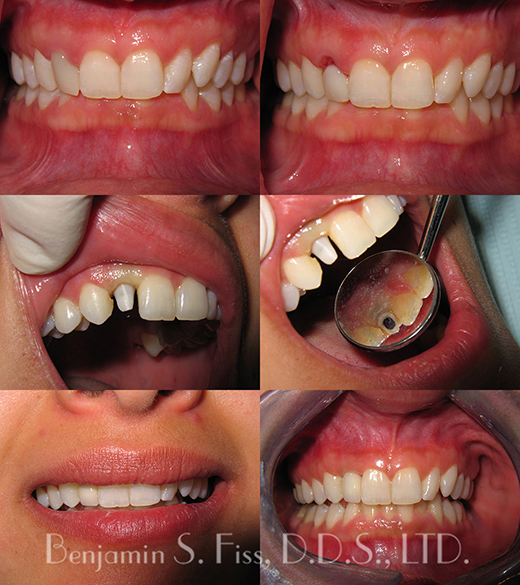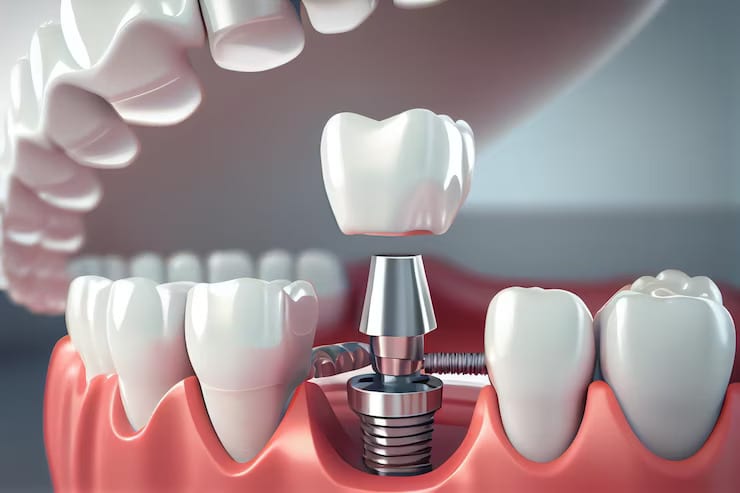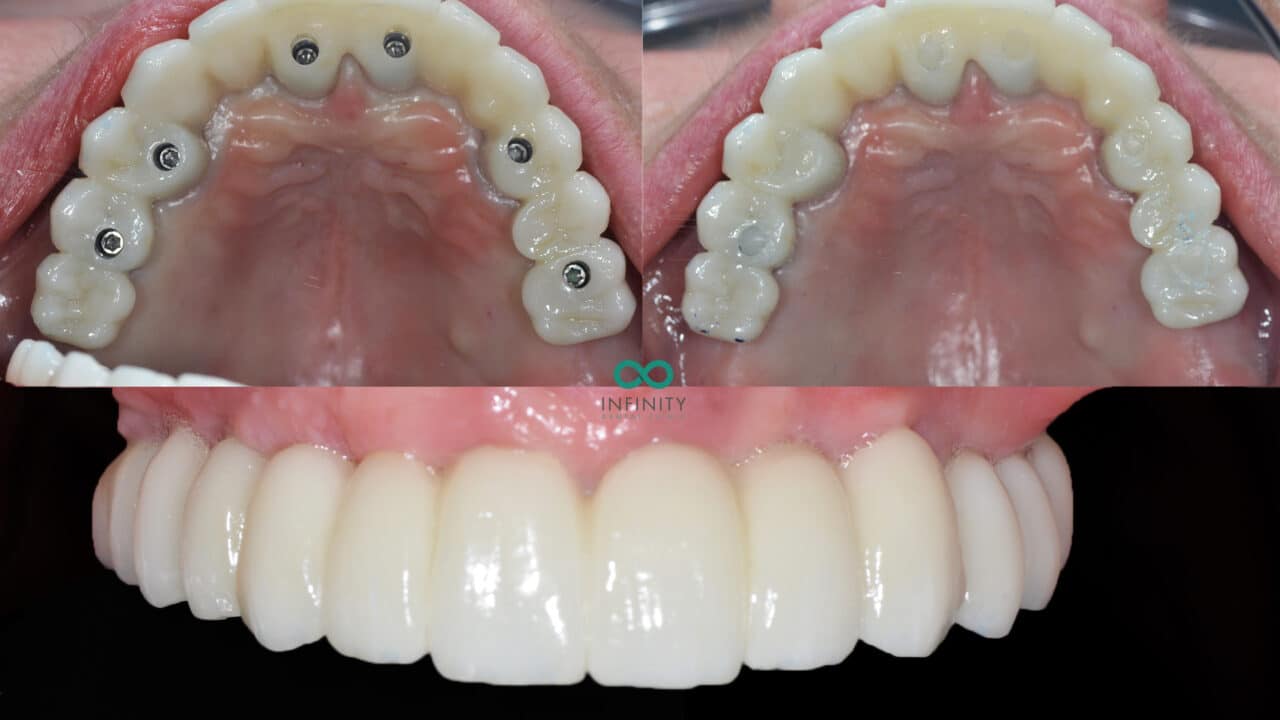Dental Care Associate Columbus OH Single-Tooth Implants: Everything You Need to Know
Dental Care Associate Columbus OH Single-Tooth Implants: Everything You Need to Know
Blog Article
Dentists Johnstown OH Dental Implant Benefits
Dental implants have emerged as a popular choice for people looking for a long-term answer to tooth loss. One essential side of understanding dental implants entails their impact on adjacent teeth. This is particularly important for ensuring the health and longevity of the complete dental structure.
When a dental implant is placed, it mimics the function of a natural tooth root. By doing so, it helps preserve the integrity of the encompassing bone structure. Natural teeth rely on a balanced, interconnected system for assist, and dental implants can contribute positively to that dynamic. The stability offered by the implant allows for higher distribution of chew forces, which may prevent undue stress on adjacent teeth.
Pediatric Dentist Sunbury OH Dental Implant Services: Find the Best in Your Area
In cases where a tooth is missing, the neighboring teeth might shift into the vacant house. This shifting can result in misalignment and various other problems. By putting a dental implant, the chance of this shifting is decreased, as the implant acts as a placeholder that preserves the natural alignment of surrounding teeth. This preventive effect is crucial for long-term oral health and function.
Another essential consideration is bone loss. When a tooth is misplaced, the jawbone within the space can begin to deteriorate as a result of a scarcity of stimulation. Dental implants assist prevent this bone loss by offering the mandatory stimulation to the jawbone, much like a natural tooth root would. This preservation of bone not only supports the implant itself but also contributes to the steadiness of adjacent teeth.
The sort of material used in dental implants, sometimes titanium, has a singular property of osseointegration, which means it fuses with the bone over time. This integration offers a sturdy foundation for the synthetic tooth while making certain that the implant doesn’t negatively have an effect on surrounding structures. As the implant integrates, it creates an environment that contributes positively to the health of the adjacent teeth.

Regular dental check-ups play an important position in monitoring the impression of dental implants on adjacent teeth. Professional assessments can help determine any issues which will arise, ensuring prompt remedy and maintaining the health of the complete dental arch. These evaluations might embrace X-rays to examine for bone density and the general condition of the implant and surrounding teeth.
Johnstown Dental Johnstown OH Permanent Dental Implants
Oral hygiene practices are important for people with dental implants. Proper brushing and flossing habits not solely contribute to the longevity of the implant but in addition be sure that adjacent teeth stay healthy. Food particles and plaque that accumulate around the implant could cause problems, together with peri-implantitis, an inflammatory condition that can have an effect on surrounding teeth and tissues.
The positioning of dental implants can affect the health of adjacent teeth. If an implant is placed at an angle or not properly aligned, it could lead to increased stress on neighboring teeth. This misalignment might trigger put on and tear on adjacent enamel, potentially resulting in cavities or different dental issues. Therefore, the ability and experience of the dentist performing the implant procedure are paramount in reaching a successful consequence.
In some cases, extra procedures could additionally be needed to prepare the surrounding space for an implant. Bone grafting or sinus lifts might help create a better setting for the implant. While these procedures are aimed toward enhancing the site for the implant, they also serve to guard the health of adjacent teeth by creating a extra secure foundation.
Smile Care Sunbury OH Dental Implant Services: Find the Best in Your Area

As dental know-how evolves, advancements in implant methods lead to higher outcomes. Improved imaging techniques and computer-aided design enable for more exact placements that reduce risk to adjacent teeth. With these developments, the probability of issues that would arise from improperly positioned implants diminishes significantly.
Post-operative care additionally performs a crucial function in making certain that adjacent teeth stay unaffected. Patients must adhere to the dentist's directions regarding food plan, oral hygiene, and follow-up visits. Neglecting these guidelines may lead to problems that impression not only the implant but additionally the neighboring teeth.
Premier Dental Galena OH Step-by-Step Guide to Dental Implant Procedures
In conclusion, dental implants, when placed appropriately and cared for properly, have the potential to enhance the health of adjacent teeth rather than detract from it. They maintain alignment, stimulate bone growth, and provide a secure foundation that supports the complete dental structure. Understanding how dental implants affect adjacent teeth emphasizes their significance as a long-term tooth replacement resolution. With steady developments in know-how and methods, the mixing of dental implants into restorative dentistry is turning into increasingly successful, guaranteeing wholesome and practical smiles for years to return.

- Dental implants prevent adjacent teeth from shifting into the hole created by a missing tooth, serving to to maintain proper alignment within the mouth.
- The rebuilding of the jawbone by way of an implant can stimulate surrounding teeth and keep them healthy by providing needed bone density that may in any other case diminish.
- Adjacent teeth benefit from the stabilization that dental implants provide, decreasing the danger of damage and tear from misalignment throughout chewing.
- Implants can protect adjacent teeth by acting as a framework, which may distribute chew forces evenly throughout the dental arch instead of inserting undue stress on neighboring teeth.
- When positioned accurately, dental implants minimize the chance of gum disease which might affect adjacent teeth by maintaining a clean and healthy gum line.
- The presence of an implant can facilitate an improved oral hygiene routine, as it eliminates the need for bridgework that would entice meals particles round adjacent teeth.
- Regular dental check-ups can reveal how nicely the implant integrates with surrounding constructions, ensuring ongoing health for adjacent teeth.
- Implants can prevent the natural process of bone resorption that occurs after tooth loss, positively impacting the stability and longevity of adjacent teeth.
- The use of dental implants might reduce the necessity for more invasive procedures in the future, providing a long-term solution that maintains the structure of the entire dental arch.
- Successful integration of an implant into the dental arch enhances overall oral operate, usually leading to improved confidence and oral health for adjacent teeth.undefinedHow do dental implants have an result on adjacent teeth?
What impression do dental implants have on the alignment of adjacent teeth?
Dental implants usually prevent the shifting of adjacent teeth, serving to to maintain proper alignment. This stability can reduce the risk of developing chunk points over time.
Can dental implants trigger injury advice to nearby teeth?
When placed accurately by a certified skilled, dental implants shouldn't damage adjacent teeth - Dental Care Pataskala OH. However, improper placement or inadequate planning could result in problems
Mono Implants Columbus OH Full Mouth Dental Implants: A Comprehensive Solution
Do dental implants require any special Extra resources care regarding adjacent teeth?
Maintaining good oral hygiene is essential. Surrounding teeth should be brushed and flossed regularly, and routine dental check-ups will help be certain that each the implants and adjacent teeth stay wholesome.

Will dental implants impact the health of my surrounding teeth?
Dental implants can improve the health of surrounding teeth by distributing chunk forces evenly, reducing wear and tear. Additionally, they will prevent bone loss within the jaw, which might affect adjacent teeth.
Premier Dental Condit OH Full Mouth Dental Implants
Are there any long-term results of dental implants on close by teeth?
Long-term, dental implants might help preserve the health of adjacent teeth by stopping shifting and potential gum points, finally contributing to better oral health total. - Johnstown Dental New Albany OH
Can gum problems arise round adjacent teeth after getting implants?
If proper dental care is uncared for, gum issues may develop round both the implants and adjacent teeth. Following post-operative care directions is important to minimize these risks.
Dentist Hartford OH Permanent Dental Implants
How do dental implants compare to bridges when it comes to adjacent teeth?
Dental implants are usually beneficial as they don’t require alteration of adjacent teeth, not like bridges, which necessitate reshaping of close by teeth for assist. (Dental Care Associate Granville OH)
Can I still get cavities in adjacent teeth if I have dental implants?
Yes, adjacent teeth can still develop cavities if not properly cared for. Dental implants themselves cannot get cavities, but they require vigilant hygiene practices to protect surrounding natural teeth.
What like it is the success rate of dental implants in relation to surrounding teeth?
The success rate of dental implants is high, however it largely is dependent upon the quality of the procedure and ongoing care. Well-maintained implants typically lead to better outcomes for adjacent teeth as properly.